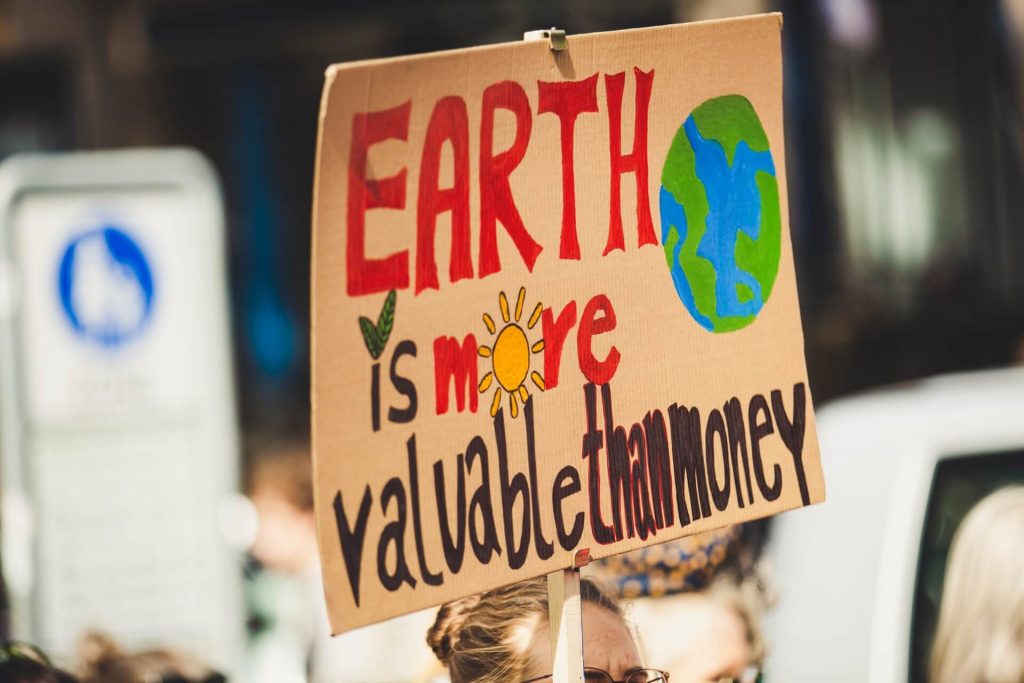Most of my posts on this blog are about actions you can take to live more sustainably, from travel tips, to energy saving tactics, shopping advice and more. Because actions speak louder than words right?
Well yes, because words mean nothing if you don’t follow through. However, I think speaking up is often what prompts action. After all, to bring about change first you have to communicate to people that there is something that needs changing.
With that in mind, here are some ways to make your voice heard and communicate the change you want to see, not just about environmentalism, but any cause that you believe in.
Contact Your Representatives
The responsibility for tackling environmental and social issues doesn’t rest solely on the public. It requires the attention of all those in positions of power. That includes all members of local committees, county councils, and government representatives, all the way up to party leaders and members of the European Parliament.
Contact your representatives, tell them the issues that affect you directly, explain why, and what can be done to address them. Ask questions and seek evidence for any action that your representatives claim to be taking. Don’t be rude, but get your message across and highlight the fact that you are their constituent.
Even if you don’t get the answers or immediate action that you might like, letting your representatives know that these issues exist and matter to you is important.
If you’re in Ireland, visit Who Is My TD? and the Oireachtas website to find out who your TDs, MEPs, Seanad Members and Councillors are.
Remember to Vote

And if you’re fed up with or unhappy with the policies your representatives are implementing, use the most powerful tool you have a citizen. Always vote.
It might seem insignificant but, to be blunt, it isn’t. Just taking Ireland as an example, we’ve had two major referendums in recent times that have shown the power of high voter turnout. Not to mention the 2020 General election which saw a three-party race for the first time in the state’s history.
Your vote matters, and it’s the most effective way for you to tell government exactly what you value in your representatives.
Check that you are registered to vote here!
Campaign
There’s strength in numbers when it comes to being heard. Find like minded groups that have realistic and evidence-based goals to campaign with.
Campaigning can take many forms including volunteering, educating, peaceful protesting (COVID permitting) and simply sharing information with people in your social circle.
Note, always be wary of campaigns that ask for money. Do your research and ensure that any organisations you join are legitimate.
Sign Petitions
I know some will roll their eyes at this one because petitions often hold little or no direct power when it comes to making change.
But what they can do is exert pressure and demonstrate the public appetite for change. Major changes in social and environmental legislation often come about only when the public demands it.
Any tool that helps illustrate public support is worthwhile in my book!
Contact Businesses & Vote With Your Wallet
Much like governments, businesses also need to take responsibility for the role they play in preventing and tackling environmental and social issues.
But unlike your local government, businesses don’t represent you. So the best way to make your voice heard is to make it clear to them that you only buy from businesses that care.
Before buying, do your research and find out what policies your chosen company is implementing, either through their website or by contacting them directly.
If their policies fall short of what you expect, say it to them. Let them know that they’re losing your business because they aren’t doing enough on the social and environmental front. Don’t be rude or aggressive, just explain that it might be worth there while making more of an effort.
I have two posts that deal with Sustainable Shopping and Online Shopping respectively from an environmental point of view.
Join Local Groups

While voting and campaigning for widespread change is all well and good, some issues are local in nature and require a more local response.
Engaging with groups in your neighbourhood or region will allow you to share your opinions and hear from others who are similarly affected. You might also gain some different perspectives on some of these issues.
Residents Associations, local Facebook groups, Reddit communities and Meetups are great places to find locals with similar concerns.
Remember this isn’t about finding an echo chamber, it’s about sharing opinions (even when they don’t agree) and pooling your knowledge in order to find solutions.
Share Your Opinions
As obvious as it sounds, if you want to be heard you need to share your opinions in some way.
But you don’t necessarily have to be shouting from the rooftops. Talking to friends and family about your (and their) opinions is a good place to start. Not only does it let people know where you stand but it’ll get them thinking about their own views too.
If you’d prefer to go the digital route, Twitter is probably the best of the social medias for starting a conversation. Facebook is great for groups and Instagram is a bit better for sharing videos and photos to get your message across.
Writing as blog is a great way to flesh out your ideas further and allow people to really see the reasoning behind your views. Blogger, WordPress and Wix are three common blog making tools.
Make videos, create podcasts, write articles, design posters. Whatever medium you find it easiest to express yourself through.
It can be scary to put yourself out there, I remember it well from when I started this blog. But just know that there will be lots of others that share your opinions. The more people speak up, the easier it is for others to do the same.





